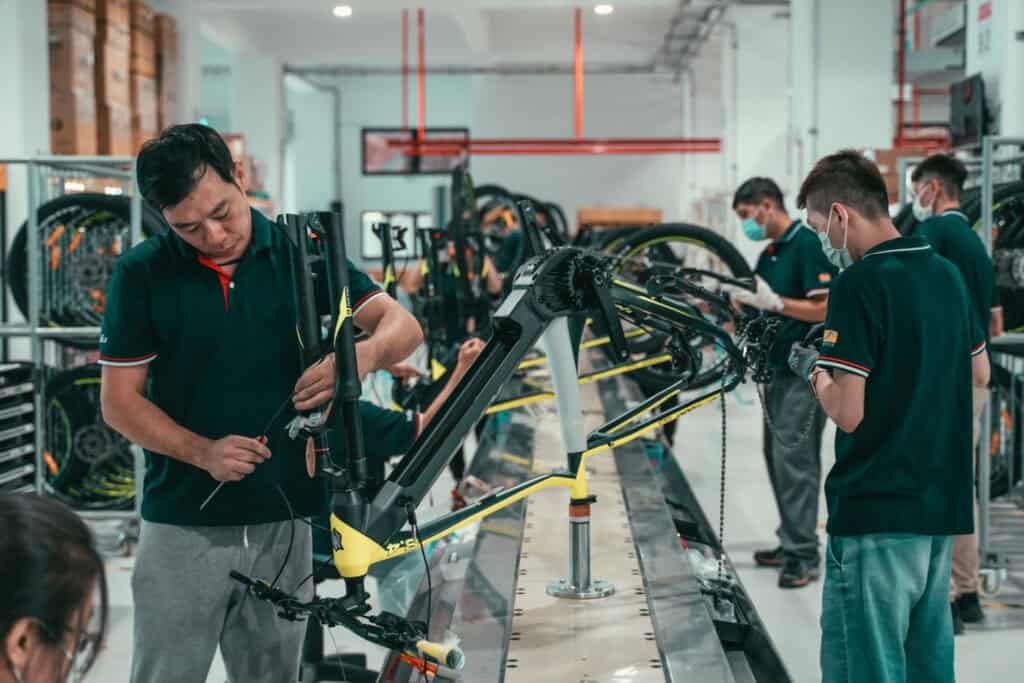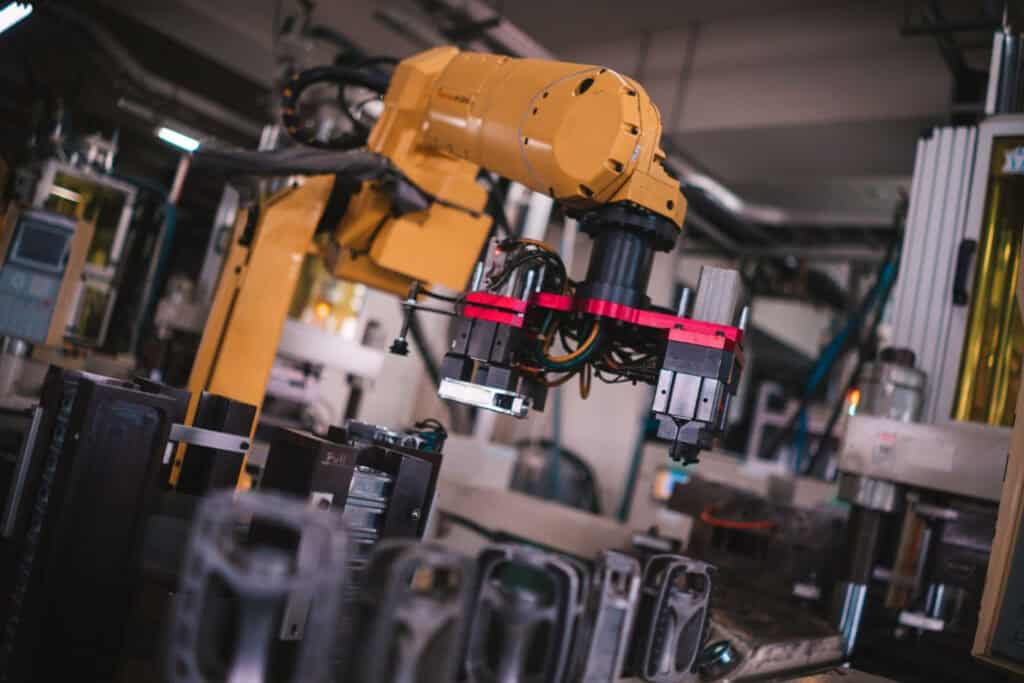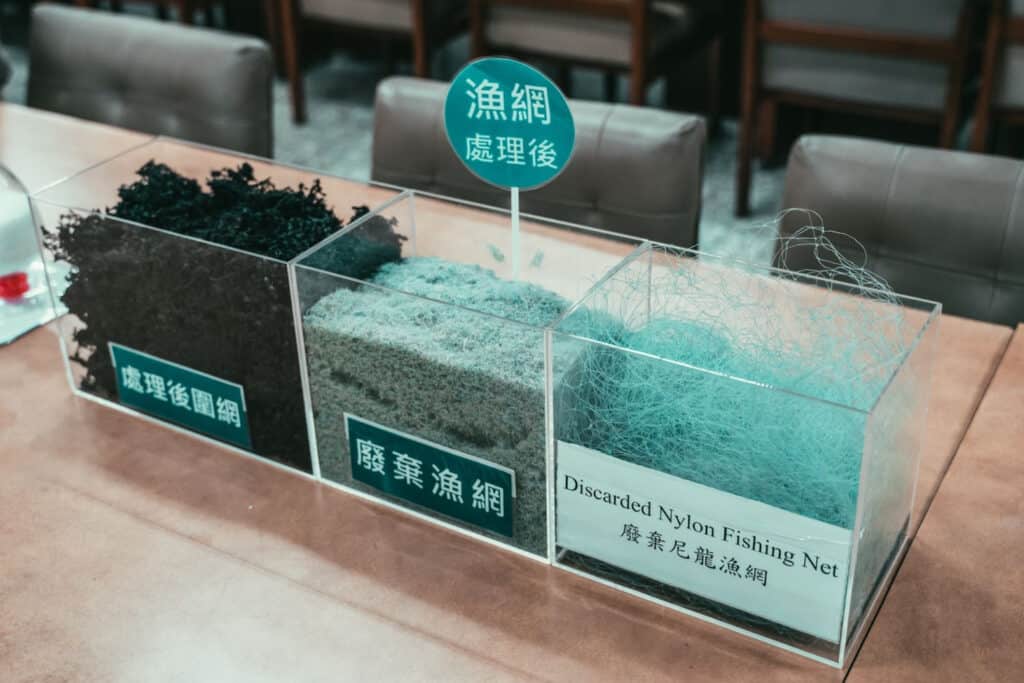The Bicycle Kingdom—Taiwan has earned this title through decades of innovation, craftsmanship, and global leadership in the cycling world. With its vertically integrated supply chains, cutting-edge technology, and commitment to sustainability, Taiwan is indispensable to the global bicycle industry. Here are seven key reasons why Taiwan will remain at the forefront of cycling innovation for years to come.

1. Vertically Integrated Supply Chain
At the heart of Taiwan’s cycling success lies its unique vertically integrated supply chain. Concentrated in regions like Taichung, hundreds of suppliers work closely together to produce everything from tiny screws to high-tech frames and complete bicycles. It’s no coincidence that Taichung is also known as the “Detroit of the Bicycle Industry” – a nod to Detroit’s significance in the American automotive industry. This close-knit network significantly shortens production and transportation times while maintaining flexibility and efficiency. Global brands like Giant and Merida benefit from this synergy, ensuring Taiwan remains a world leader in bicycle manufacturing.

2. Digital Transformation and Innovation
Taiwan is a hub for production and a leader in technological innovation. This applies not only to the bicycle industry but also to other sectors, such as electronics or the semiconductor industry. This strong connection to modern technologies is particularly noticeable in the cycling sector. Companies across the industry are adopting digital tools and processes to improve everything from design to production. Manufacturers are using big data and AI to analyze consumer trends, optimize production schedules, and create personalized products. This digital transformation ensures that Taiwan’s bicycle industry will continue to push the boundaries of innovation, meeting the ever-evolving demands of cyclists worldwide.

3. Smart Manufacturing
Smart manufacturing is revolutionizing the way bicycles are made in Taiwan. Factories are increasingly automated, using advanced robotics and IoT systems to enhance precision, reduce waste, and improve production speed. These innovations extend to the products themselves, with manufacturers integrating smart technologies into bicycles. Features such as app connectivity and intelligent power management systems in e-bikes are becoming the new standard, driven by Taiwan’s innovative energy.

4. Material Innovation
Taiwan’s bicycle industry is a pioneer in exploring and developing advanced materials. From lightweight yet durable carbon fiber to innovative uses of recycled materials, Taiwanese manufacturers are setting new standards for performance and sustainability. Suppliers are also experimenting with next-generation thermoplastics and other composites, ensuring that bicycles remain at the cutting edge of strength, weight, and affordability. This commitment to material innovation enhances product quality and positions Taiwan as a leader in environmentally friendly cycling solutions.

5. Sustainable Practices
As the world moves towards sustainability, Taiwan’s bicycle industry is leading the charge. The Bicycling Alliance for Sustainability (BAS), launched in 2022, exemplifies this commitment. The initiative aims to reduce carbon emissions by 25% per bicycle by 2030, aligning with global climate goals. It is considered one of the leading sustainability efforts in the international bicycle industry. Additionally, many manufacturers are incorporating recycled and low-impact materials into their production processes. These sustainable practices resonate with eco-conscious consumers and help Taiwan solidify its reputation as a responsible industry leader.

6. Global Collaboration
Taiwan’s influence extends far beyond its borders, thanks to its active participation in global collaborations. Taiwanese suppliers and manufacturers are trusted partners for international brands, offering everything from high-performance components to complete bikes. This spirit of collaboration has also been evident in Taiwan’s resilience during the recent global supply chain disruptions during the COVID-19 pandemic. By diversifying partnerships and embracing global markets, Taiwan’s bicycle industry continued to thrive and adapted quickly to the changing conditions.

7. International Trade Platforms
Taiwan’s role as a global cycling hub is cemented by its premier trade platforms: Taipei Cycle and Taichung Bike Week. Taipei Cycle, held every March, showcases cutting-edge products, technologies, and trends. It also hosts industry-leading seminars and networking events, making it a must-attend event for the global cycling community. On the other hand, Taichung Bike Week caters specifically to OEM and aftermarket suppliers, fostering direct connections and collaborations that drive the industry forward. Both events highlight Taiwan’s pivotal role in shaping the future of cycling.
More Info about TAIPEI CYCLE: https://www.taipeicycle.com.tw/en/index.html
Visitor Registration for TAIPEI CYCLE: https://www.taipeicycle.com.tw/en/register-pro-visitor/index.html
By the way: Your feedback matters! To ensure TAITRA provides the best possible experience for all Taipei Cycle visitors, they’re inviting our readers to share their thoughts through a quick questionnaire. By participating, you’re directly contributing to shaping future offerings and improvements of TAIPEI CYCLE. Click here to access the form.

Taiwan’s Bicycle Industry and the Road Ahead
From its vertically integrated supply chain to its advances in sustainability and innovation, the reasons listed above show why Taiwan plays a central role in the global bicycle industry. Its capacity to adapt to new trends, adopt digital transformation, and engage in international collaboration positions it as a key player in shaping the future of cycling. The reasons mentioned also indicate that this is likely to remain the case in the future. Therefore, Taiwan will continue to hold the title “The Bicycle Kingdom” for a long time.
This article was funded by the Taiwan International Trade Administration (TITA)
Like to learn more? Watch this video about Taiwan’s bicycle industry:


